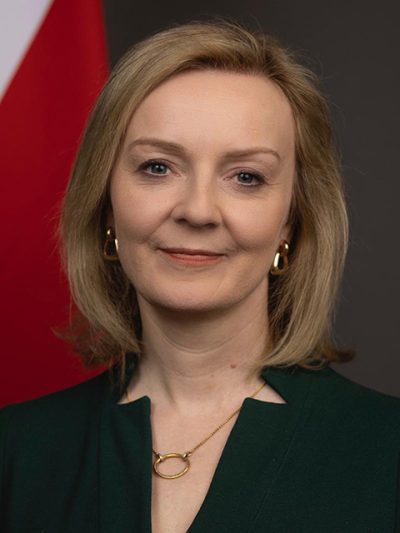Liz Truss to Declare China a ‘Threat’ to National Security as PM and Give Beijing a Similar Status to Vladimir Putin’s Russia

All Global Research articles can be read in 51 languages by activating the “Translate Website” drop down menu on the top banner of our home page (Desktop version).
To receive Global Research’s Daily Newsletter (selected articles), click here.
Follow us on Instagram and Twitter and subscribe to our Telegram Channel. Feel free to repost and share widely Global Research articles.
***
Liz Truss is set to declare China as a ‘threat’ to national security if she becomes Prime Minister next week, it has emerged.
The Tory leadership favourite is poised to give China a similar status to Russia, as part of a rethink of Britain’s foreign policy, should she enter Downing Street.
As part of last year’s ‘integrated review’, Russia was described as an ‘acute threat’ to UK security.
It has been reported that Ms Truss will classify China in the same terms if she replaces Boris Johnson in Number 10.
The Foreign Secretary’s move to refocus on the threat posed by Beijing was hailed by her supporters.
Her leadership campaign is being backed by some of China’s fiercest critics in the House of Commons, such as former Tory leader Sir Iain Duncan Smith and Tom Tugendhat, the chair of the Foreign Affairs Select Committee.
But Lord Ricketts, a former national security adviser, suggested a more ‘nuanced’ position was needed in relation to China, in contrast to Britain’s stance with Russia.
According to The Times, Ms Truss’s tougher line on China will come as part of an attempt to clamp down on Treasury efforts to strengthen economic cooperation with Beijing.
Last month, it was claimed Ms Truss’s rival for the Tory leadership, Rishi Sunak, had been close to signing a new economic agreement with China when he was Chancellor.
During her leadership campaign, Ms Truss has already vowed to update last year’s integrated review – with a renewed focus on China and Russia – should she become PM.
A Truss campaign source told the newspaper: ‘Liz has toughened the UK’s stance on Beijing since becoming foreign secretary and would continue to take a hawkish stance as PM.
‘She’s been active in calling out China’s economic coercion, working with G7 and other allies to mobilise investment into low and middle-income countries as a counter to China’s Belt and Road initiative.’
In the 2021 integrated review of Britain’s security, defence, development and foreign policy, Russia was declared to be ‘the most acute threat to our security’.
By contrast, China was described as providing a ‘systemic challenge’ to the UK’s security, prosperity and values.
‘We will continue to pursue a positive trade and investment relationship with China, while ensuring our national security and values are protected,’ the review added.
‘We will also cooperate with China in tackling transnational challenges such as climate change.’
Conor Burns, a minister in the Northern Ireland Office and a supporter of Ms Truss, said that reclassifying China as a ‘threat’ was ‘the right thing to say’.
‘I think it’s characteristic of Liz that she speaks as she finds,’ he told BBC Radio 4’s Westminster Hour last night.
‘That was always my experience of her at the Department for International Trade.
‘She wasn’t one for rushing off to sign trade agreements or declaring “golden age” of relationships with China while she was there.
‘She was very hard-nosed and hard-headed.’
But, while Lord Ricketts agreed that Beijing posed ‘the real threat for the next generation’, he warned a more ‘nuanced’ approach was needed.
The crossbench peer, who served as David Cameron’s national security adviser in Downing Street, said: ‘China is the real threat for the next generation. Russia is the short-term immediate crisis. But it’s quite right to focus on China.
‘Somehow we have to manage to bring together being very vigilant on security, very tough on human rights, but also maintaining a capacity to trade with what is, after all, one of the largest and most vigorous markets in the world.
‘So it’s a complicated mix that we have to put together. I’m not sure declaring it as a threat is quite the most nuanced way of doing it.
‘But she [Ms Truss] is quite right to be focussing on China as a big issue.’
While he was PM, Mr Cameron used a 2015 state visit to London by Chinese President Xi Jinping to hail a ‘golden era’ in relations between the two countries.
Click here to read the full article.
*
Note to readers: Please click the share buttons above or below. Follow us on Instagram and Twitter and subscribe to our Telegram Channel. Feel free to repost and share widely Global Research articles.
Featured image is licensed under OGL 3

